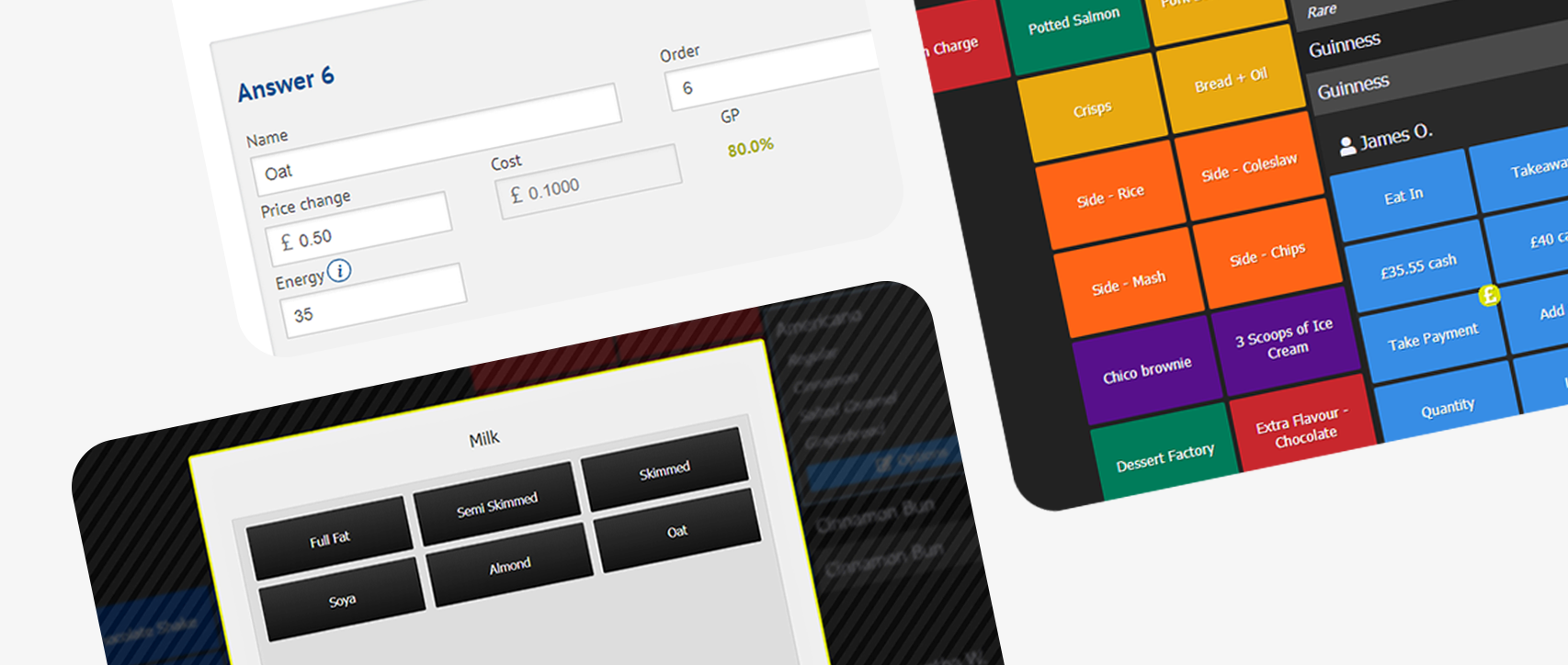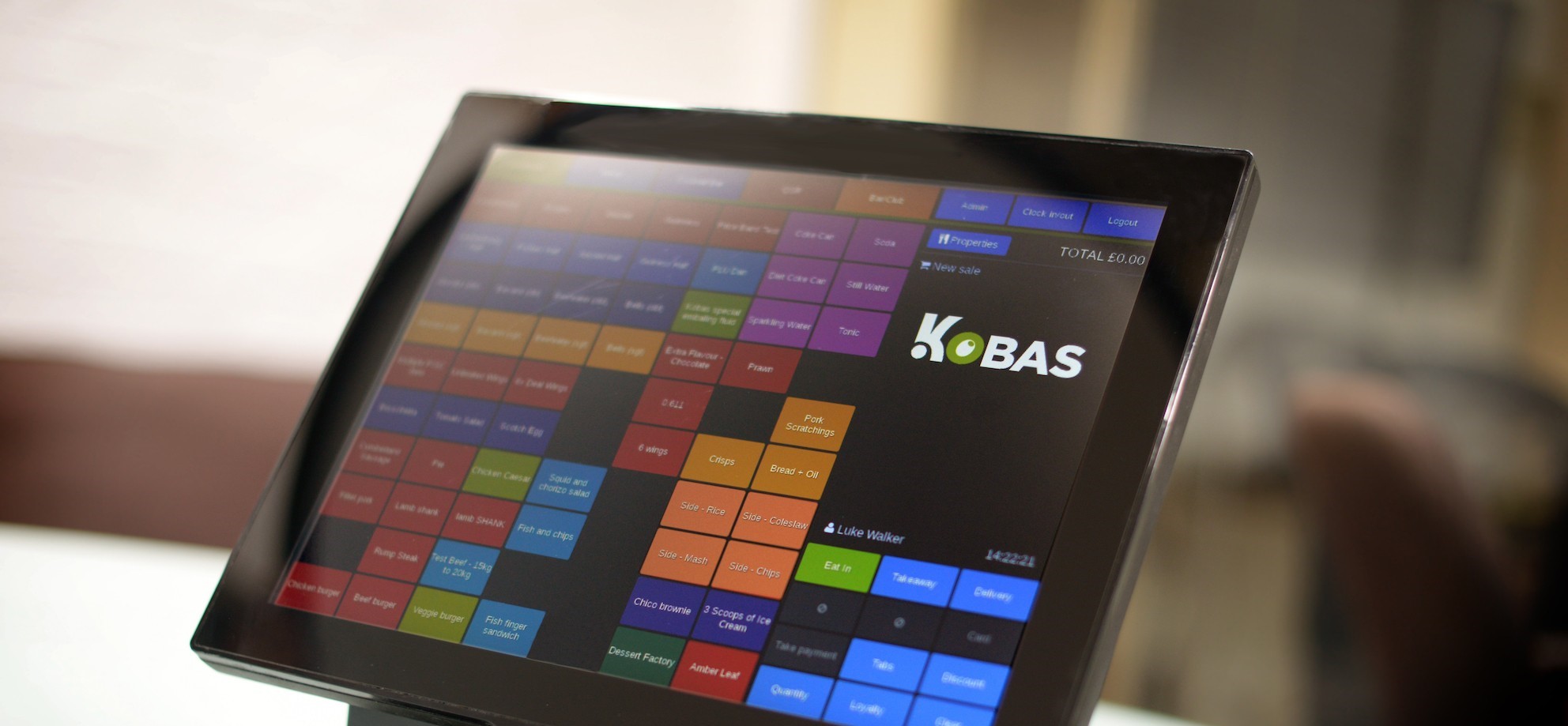If you’re not already using QR codes for your hospitality business, you’re missing out on an amazing way to greatly increase your guests’ satisfaction. And that’s no matter the kind of hospitality establishment we’re talking about.
In this post, we’ll explain just why QR codes can be so helpful and provide actionable strategies on how to implement them.
Keep reading to learn more about this approach to keeping up with the digital times.
- Digital Ordering
- Health and Safety Information
- Navigation and Other Information
- Feedback and Reviews
- Contactless Check-In/Check-Out
- Capturing Cata for Improved Marketing
- Designing QR Codes
- QR Code Tool for Enhancing Guests’ Experience
- Embracing the Future of Hospitality
1. Digital Ordering
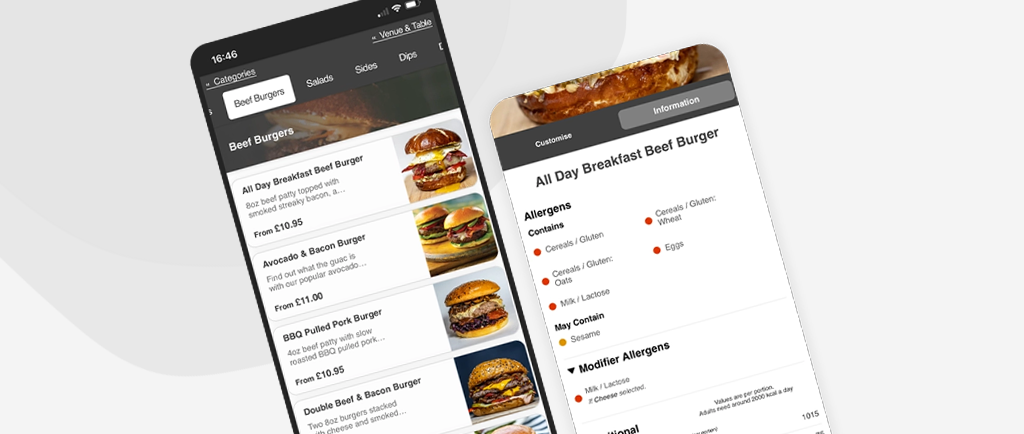
One of the many benefits of the QR code is efficiently gaining access to different online spaces and materials. This includes a web app for ordering. Why is digital ordering through QR codes helpful? Because:
- It makes the guests’ experience more convenient and fast. Guests don’t need to search the App Store to find the ordering app, nor do they need to wait for busy service staff to have their order taken.
- It’s more hygienic and cost-effective than printed menus.
- It allows you to make quick and easy menu updates without reprinting menus.
You place a QR code on your guests’ tables or the counter, on your food truck or stall, or in guests’ rooms.
The code then allows them to access the menu, conveniently place an order using their smartphone, and even pay through the digital interface. Most modern apps contain allergen, dietary and nutritional information too. This eliminates the need for navigating between different apps, websites, or printed materials for important information.
Digital ordering doesn’t stop at ordering menu items, however, but may extend to service requests and amenities. You may place QR codes:
- In rooms and around your resort, enabling the guests to scan the codes to request services such as spa appointments, cabana reservations, or other amenities.
- In fitness centres, on fitness equipment and informational displays, so that gym-goers can scan the codes to book classes, check equipment availability, or access workout tutorials.
- At seats or on displays around the venue, allowing the attendees to scan the codes to request food delivery, book VIP areas, or access event schedules.
2. Health and Safety Information
To enhance guest confidence and trust, you’ll want to provide easy and up-to-date access to vital information. With QR codes, guests can be well-informed about health and safety protocols without the need for physical materials.
This is especially relevant for:
- Restaurants — You may place the QR codes on menus, tables, and informational displays informing the guests about the sanitation standards you’re upholding.
- Event venues — You place the QR codes at entrances, exits, and other key locations. This provides the visitors access to up-to-date health guidelines, emergency procedures, and evacuation routes.
- Hotels, resorts and spas — Guests scan the codes located in their rooms and common areas to learn about your cleaning protocols, wellness guidelines, and health services available on-site.
3. Navigation and Other Information
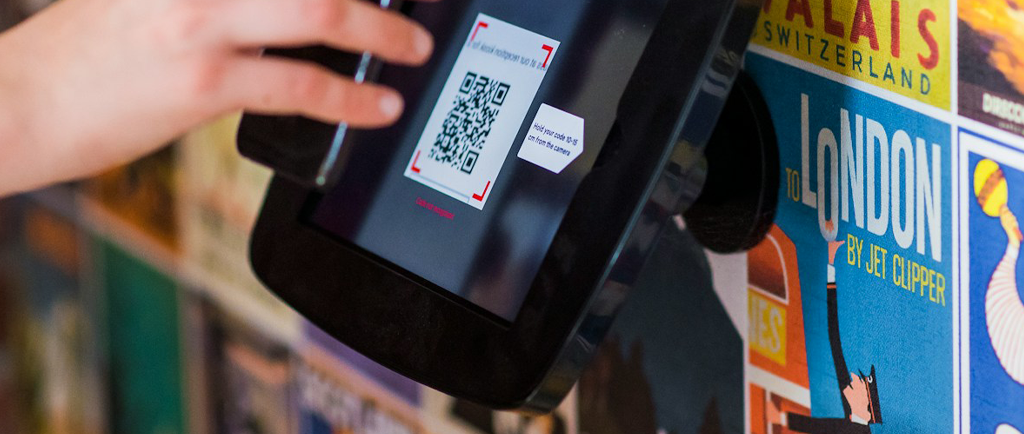
A guest’s experience with some kinds of hospitality businesses, especially, relies on them being able to navigate their way around with as little effort as possible. With these establishments, it’s also essential to provide other kinds of detailed information to guests:
- Tourist attractions — Visitors scan the codes placed at various points of interest to access detailed information, audio guides, and historical context. This is helpful for several reasons. It not only enhances the educational experience for visitors, but also provides multilingual support for international tourists, and reduces the need for physical brochures and guides.
- Theme parks — You place the codes on maps, near rides, and at show venues. In turn, this lets the visitors view interactive maps, ride wait times, and show schedules. The benefits are access to real-time information, enhanced navigation and planning for visitors, and again, reduced need for printed materials.
- Convention centres — Attendees scan the codes placed on venue maps and informational displays to navigate the venue, find session locations, and access speaker information. It’s clear why this is helpful: simplified navigation and real-time access to event schedules and other information.
4. Feedback and Reviews
QR codes make it easy for guests to share their opinions and experiences. Being simple to scan and in sight, they greatly increase the chances of guests being willing to leave precious feedback.
To help you out, here are some QR code-specific tips for getting the most out of feedback forms:
- Ensure visibility by providing QR codes in multiple locations in high-traffic areas such as exits, menus, and near payment counters.
- Use signage, table tents, or flyers to promote the QR code and encourage guests to leave feedback.
- Make sure the QR code links directly to the feedback form without requiring additional steps such as logging in or navigating through multiple pages.
- Include the QR code in digital communications such as email receipts or reservation confirmations.
- Use QR code tracking tools to monitor how many times the code has been scanned and identify high-traffic areas.
5. Contactless Check-In/Check-Out
You can reduce wait times and streamline entry to your establishment by using QR codes to allow the guests to check-in and gain entry digitally.
This works by sending the guest a unique QR code in an automated email when placing a reservation or booking. Upon arrival, guests then scan this QR code at the door, a kiosk or with a staff member’s device. This option works well for clubs with reserved areas, hotels, and pubs with rooms.
Apart from allowing for a more streamlined experience, depending on your establishment, other benefits of contactless check-ins include:
- Restaurants — Table management is more accurate and efficient, as the system alerts your staff who can then immediately prepare the table.
- Events and venues — The system verifies the ticket and provides real-time attendance tracking.
- Transportation services — The system confirms the guest’s booking and ensures accurate passenger counts.
- Hotels and resorts — Guests can use a QR code to enter their room, which eliminates the need for traditional keys.
Depending on your business (restaurants, cafes, bars, hotels), the check-out process is more convenient for guests too, as they can review and pay their bills via apps that can be accessed by scanning a QR code.
6. Capturing Data for Improved Marketing
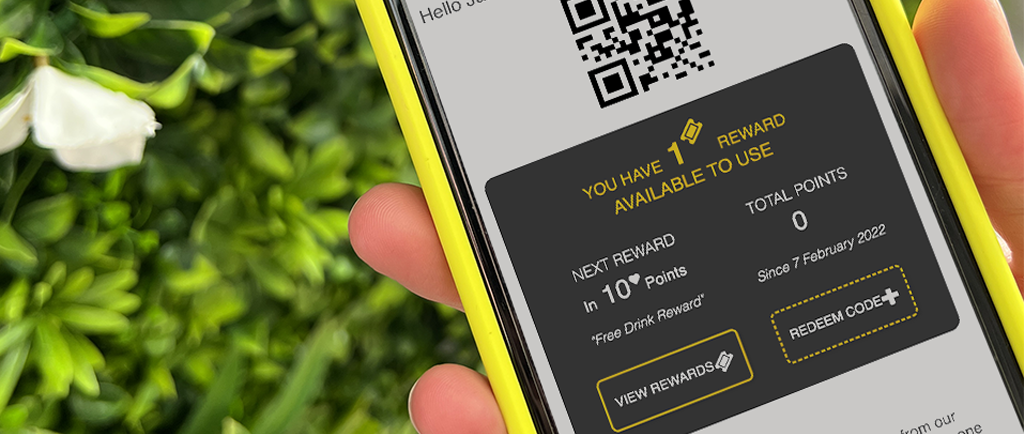
A loyalty program is a staple piece of technology in the hospitality industry and for good reason too. By incentivising and rewarding diners, loyalty programs provide many benefits and have proven to:
- Increase customer retention, building a steady stream of regulars and a reliable revenue source.
- Improve the customer experience, making diners feel valued and appreciated.
- Improve customer lifetime value (CLV), meaning the revenue generated from each customer over their time with the establishment exceeds the cost of acquiring them.
- Drive a higher spend per visit. Data shows customers using the loyalty program powered by Kobas spend nearly two times as much as non-loyalty members.
- Increase staff tips, attributed to higher spending per visit and positive experiences, leading to more generous behaviour. Data found by Kobas shows that loyalty members tip 2.5x more than non-loyalty members.
- Enhance the guest experience through personalised offers and communication as the app captures an array of data including basic details such as name, age, email, along with spending patterns and preferences.
QR codes are a tried and tested way to encourage quick sign-ups in the venue when the customer is already enjoying their experience. To incentivize signing up, you can do the following:
- Provide special discounts for guests who sign up. Place promotional collateral at front desks, on tables, or on the bar.
- Highlight the ease of managing reservations and orders through the app.
- Make the registration process easy by requesting minimal required fields to begin with.
- Provide QR codes on receipts to the sign-up page, accompanied by showing the customer how many points they would’ve earned if they were signed up.
QR codes can also be used as access points to other sign-up pages hosted on the web, such as newsletter sign-ups and gaining WiFi access. When guests scan the codes while being logged in, businesses are able to conveniently gather even more data that helps in personalising the guest experience. This can be on the level of an individual or a particular demographic:
- Personalised offers — Past guest interactions allow you to send tailored marketing messages and offers. For instance, if data shows that a specific customer frequently orders a particular type of wine, you can send an email with a QR code that when redeemed provides a free glass of the customer’s favourite wine.
- Guest profile enhancement — Data on guest demographics allows for better-targeted marketing efforts. You may notice that guests aged 30-45 frequently book adventure activities like hiking and water sports, so to this age group, send targeted emails and push notifications promoting adventure packages and discounts on equipment rentals.
Designing Effective QR Codes
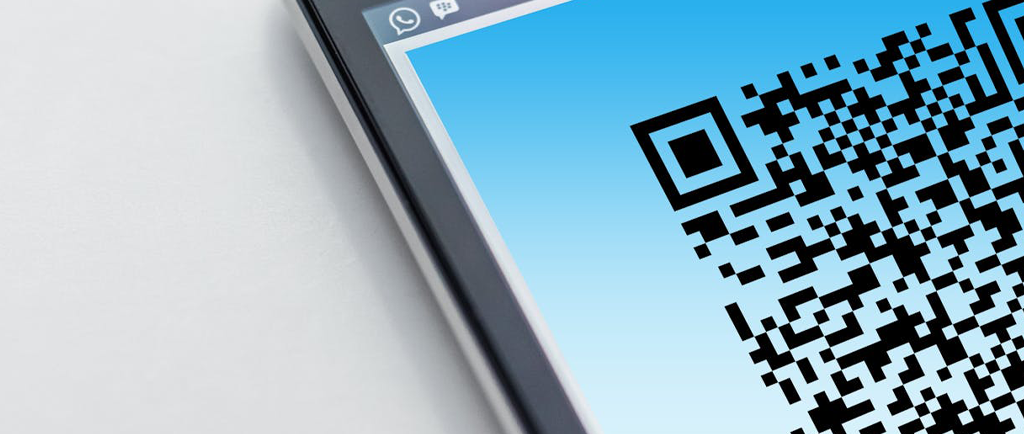
To ensure an optimal adoption of QR codes and effectively engage with your customers, you’ll also need to thoughtfully approach the codes’ design. Here’s how to do that:
- Choose colours that align with your brand and add your business logo or a relevant image to the centre of the QR code to make it recognisable and appealing.
- Make sure the QR code is easily scannable. It needs to be large enough, printed in high resolution, and with enough contrast between the code and the background.
- Check whether the QR code links to the correct URLs, such as menus, reservation systems, feedback forms, or loyalty programs.
- Test the QR code with different devices and apps to ensure it works smoothly.
- Ensure the QR code is accompanied by a design that makes it clear to customers what it’s for.
QR Code Tool for Enhancing Guests’ Experience
To achieve all of the above, you’ll need to use the right software tool. You can do this in minutes with various platforms online such as Uniqode’s QR tool.
Starting from its free QR code generator to the advanced features necessary for enhancing your guests’ experience, Uniqode offers packages for businesses of all sizes and needs. There’s also a free trial and the demo option so you can check out the tool in action before purchase.
Embracing the Future of Hospitality
Integrating QR codes into your operations is a transformative step towards modernising guest experiences. And with today’s tech-savvy guests, the adoption of this approach is not something to fear.
Using QR codes makes guest interactions more convenient, personalised and engaging, and leads to a deeper connection between the guest and your establishment.
In short, there’s no reason not to start implementing QR codes. Evolve your hospitality business and watch as your guests’ experience rises to new heights.
Want to see the Kobas system in action?
Kobas enables teams across the hospitality industry to manage all areas of the business, from one connected and complete system.

Written by: Nina Petrov is a content marketing specialist, passionate about graphic design, content marketing, and the new generation of green and social businesses. She starts the day scrolling her digest on new digital trends while sipping a cup of coffee with milk and sugar. Her white little bunny tends to reply to your emails when she is on vacation.
